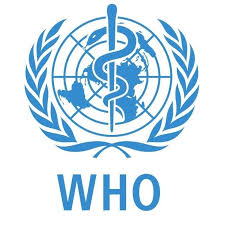The International Monetary Fund (IMF) has expressed confidence that the COVID-19 vaccine rollout across different parts of the world would boost confidence in the economy despite rising infection cases.
It warned that the uneven vaccination trend and “asynchronous recovery” could stifle growth and endanger capital flows to emerging market economies “especially if advanced economies were to begin to normalise policy.”
These were contained in the January 2021 Global Financial Stability Update released yesterday.
“An asset price correction, should investors suddenly reassess growth prospects or the policy outlook, could interact with elevated vulnerabilities, creating knock-on effects on confidence and jeopardizing macro-financial stability,” the institution said, referring to unequal COVID-19 vaccination.
Whereas most African countries and other developing countries are yet to commence inoculation, many developed countries have swung into action, with Israel, the United Arab Emirates (UAE), and the United Kingdom taking the lead.
As of yesterday, the United Kingdom had vaccinated over 10 per cent of its population while the United States was close to seven per cent. Israel, which topped the table, had hit 44.9 per cent. Germany, Italy and many other European countries have kicked off their respective campaigns.
“The world is on the brink of a catastrophic moral failure and the price will be paid with lives and livelihoods in the poorest countries,” the World Health Organisation Director-General, Dr. Tedros Ghebreyesus, warned.
IMF said the earlier-than-expected global vaccination campaigns “have boosted market sentiment and paved the way for the global economic recovery” but regretted that the uneven process could fuel financial vulnerabilities in emerging markets, including Nigeria, as capital moves to economies with reduced risks.
“Many advanced economies, such as Canada, some European Union countries, the United Kingdom, and the United States, have pre-purchased vaccines, with large per capita coverage. By contrast, procurement of vaccine doses for emerging markets and developing economies via direct negotiation or through the multilateral COVAX pillar lag significantly.
“The need for access to vaccines is particularly urgent in countries where cases have accelerated recently or remain very high,” it said in the report, stressing that delayed access to comprehensive healthcare solutions implies an incomplete global recovery and could endanger the global financial system.
It continued: “With emerging market economies accounting for about 65 per cent of global growth (about 40 per cent excluding China) over 2017–19, delays in tackling the pandemic in such countries may bode ill for the global economy.
“The global community should strive for multilateral cooperation inequitable vaccine development and delivery across the world to ensure an even and complete economic recovery. Policymakers should safeguard the progress made so far and build on the rollout of vaccines to return to sustainable growth. A bridge to the point where vaccines are widely available requires preserving monetary policy accommodation, ensuring liquidity support to households and firms, and keeping financial risks at bay.”
The Bretton Woods institution said a disrupted supply chain could affect corporate profitability even in regions where the pandemic is under control. Unven growth, according to the body, is a major threat to the overall health of the financial system.
The report pointed out that strains on households have been mitigated by fiscal support and other relief programmes. It warned that there could be enormous stress in households and a survival crisis if the government pulls the rug too fast.
“Ongoing policy support remains necessary until a sustainable recovery takes hold to prevent the pandemic crisis from posing a threat to the global financial system,” it suggested.
As the global community fidgets over uneven COVID-19 vaccination with global media predicting that Africa may have to wait for months, the Governor of the Central Bank of Nigeria (CBN), Godwin Emefiele, has warned the Federal Government against fresh lockdown, saying it is important the country consolidates on economic gains achieved so far. He said the second wave of COVID-19 may dampen recovery efforts if not managed properly.
Emefiele stated this while briefing the media on the outcome of the Monetary Policy Committee (MPC) meeting concluded yesterday. The MPC retained the monetary policy rate (MPR), the benchmark that determines the cost of lending, at 11.5 per cent. The governor said the decision to retain the benchmark rate at the first MPC for the year was “unanimous”.
The Committee also held other parameters, leaving the Cash Reserve Ratio (CRR) at 27.50 per cent and liquidity ratio at 30 per cent. The lending rate has a flexibility margin of between +100 and -700 basis points.
According to Emefiele, economic recovery is expected to progress considerably following the contraction experienced last year.
“At this meeting, the MPC was, as at the last meeting, confronted with a policy dilemma as to whether to aggressively combat the inflationary pressure or support measures aimed at accelerating growth and reversing the current recession. Although the economy is currently in a stagflation environment with s simultaneous inflationary pressure and contracting output, the Committee resolved to pursue both development and price stability in a growing economy. The Committee resolved to hold the monetary stance constant,” Emefiele said.
The governor promised that the apex bank would work with the fiscal authority to boost productivity for a progressive deceleration of prices in the coming months. The headline inflation had hit 15, 75 per cent in December, the highest in three years.
The CBN chief also encouraged commercial banks to “aggressively” intensify their efforts in providing credits to small and medium enterprises (SMEs), health, agriculture, and manufacturing to stimulate inclusive growth.
Source: Guardian



